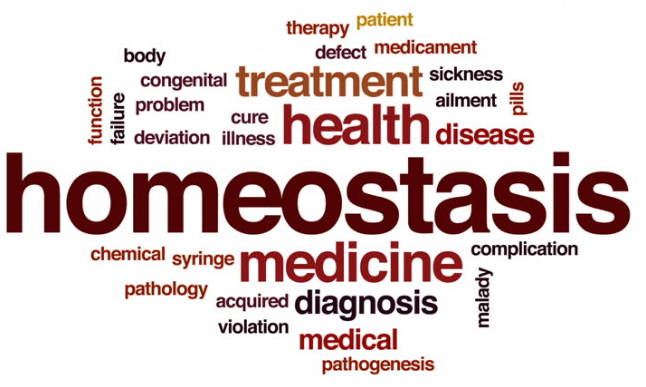 |
Tamatha
Barbeau, Ph.D. Professor of Biology Coordinator: Veterinary Studies Program Coordinator: Program for Undergraduate Research (PURE) |
|
Human
Physiology (Biol 236) Summer Lecture Syllabus
|
|
Instructor: Tamatha Barbeau, Ph.D.
|
|
Lecture
Textbook: Updated
Jun 10, 2025. The lecture textbook will be a free, open source,
downloadable PDF (Human
Physiology, by Wikibooks Contributors, 2017). This PDF textbook will have
comments made by me, in pop-up boxes associated with highlighted parts
of the text. In these comments I will tell you which sections you need to
read and study, as well as which sections we will not be covering. I recommend
downloading the PDF onto your computer (iPad, etc...) in order to view my
embedded comments, as they don't show up well when viewing the document online.
Lab Manual : There
is no published lab manual for this course. Lab exercises will be posted as
a downloadable PDF on the online course syllabus (Look further down below
on this page!). You must print these out and review them before coming
to lab. Lab quizzes are based on these handouts.
Course Description: In this course we will investigate human physiology
covering aspects of most of the major organ systems. The nature of physiology
is to understand how different organ systems of the body are regulated by
nervous and endocrine control, and this primarily involves negative feedback
systems in order to maintain homeostasis. This course is tailored specifically
towards pre-nursing students but is also relevant to students in related allied
health programs. [If your major is focused on pre-medical,
pre-pharmacy, pre-veterinary (or other) this might not be the appropriate
level course for you. Please speak with me or your academic advisor.]
This course involves A LOT of memorization of vocabulary along with more conceptual-based
learning. Furthermore, this course will involve cumulative knowledge - meaning
you will apply material covered earlier in the semester towards each successive
newer concept and topic. Furthermore, this course involves learning many physiological
pathways, and learning these pathways is often a new and challenging subject
to master.
I will provide you with MANY resources online to help you practice
and learn these pathways. Take advantage of the blank flow diagrams, chapter
study outlines, and practice exams. I will also post blank PowerPoints
online, which I will annotate over in class, so print these out or have them
on your computer for class. Be prepared to study! You should spend about
1-3 hours outside of lecture studying for each hour in lecture that material
is covered. Keep up with your reading of the textbook and review of lecture
notes frequently. You must complete a course in Human Anatomy before taking
this course, as we aim to build upon a pre-existing knowledge of anatomy.
Course
Conduct : This
summer course consists of four lectures per week and four lab sections. Lecture
material is covered through PowerPoints, clinical apps and web links embedded
within powerpoints, as well as chapter outlines, practice tests, and flow
diagrams provided as links on the course webpage. The course webpage is, well,
a webpage. I do not use Blackboard, and no class material will be found there.
Attendance: This is a five week-long course,
so attendance to each lecture and lab is absolutely necessary to succeed in
the course. There will be no more than two excused absences of lecture, and
no more than one excused absence in lab. Excused absences include medical,
legal, or other emergency that can be verified. Plus, summer courses are more
expensive per credit hour than a regular semester, so make sure you make it
worth your while economically, as well as academically.
Lecture Exams: There are 4 exams in the
semester, based on material covered in each week of the course; thus, exams
are not comprehensive. Exams will be mostly multiple choice, with some short
answer questions. On the days we have an exam, there will be no lecture that
follows.
Lecture Quizzes: There are 3 lecture quizzes
given during the start of lecture on scheduled days. Quizzes contain fill-in-the-blanks,
short answer, and essay answer questions. Spelling and grammar COUNT. If you
come late to lecture on these days you do not take the quiz. If you miss a
quiz, or arrive late on the day of a quiz, you must provide an official excuse
and make-up the quiz within 2days or else you receive a zero. There will be
no exceptions to this rule.
Lab
Reports: There will be 2 lab reports due during
the semester. Spelling and grammar counts! Click
HERE
to see how blood glucose lab report is graded.Click
HERE
for blood pressure lab report grading guidelines. Click HERE
for kidney lab report grading guidelines. Click
HERE
for general guidelines on writing lab reports and see example lab report included
within. Click
HERE
to see an example of a nursing article published using this format.
Lab Quizzes: There are 6 lab quizzes during
the semester consisting of 10 - 15 questions given during the first 15 min
of lab. Quizzes contain multiple choice, fill-in-the-blanks, and matching
questions. If you come late to lab on these days you do not take the quiz.
If you miss a quiz, or arrive late on the day of a quiz, you must provide
an official excuse and make-up the quiz within 2days or else you receive a
zero. There will be no exceptions to this rule.
Student Performance : In this course performance is assessed based on percentage of total possible points as shown below. The lab is worth 25% of the course. There are no extra credit assignments in this course, so every quiz, exam, and practical counts!
|
Number
|
Points
|
Total
|
|
| Lecture Exams |
4
|
150
|
600
|
| Lecture Quizzes |
3
|
50
|
150
|
| Lab Quizzes |
6
|
30
|
180
|
| Lab Reports |
2
|
35
|
70
|
| Total |
1000
|
||
| Grading Scale | 90 - 100% A | 75 - 79.4% C+ | 60 - 64.4% D |
| 85 - 89.4% B+ | 70 - 74.4% C | < 60% F | |
| 80 - 84.4% B | 65 - 69.4% D+ |
IF YOU HAVE QUESTIONS ABOUT APPLYING TO FMU'S BSN NURSING PROGRAM:
ContactClinical Coordinator - Nursing, Kelly Heavner, Office: LNB 144 Phone: 843-661-1689, E-mail
SUMMER
LECTURE SCHEDULE: The following is a tentative
lecture schedule of the subject material, exam, and quiz dates.
On this Syllabus page I will post narrated PowerPoints,
as downloadable PDFs, as well as PDFs that you can print out and bring to
lecture to annotate. I routinely give examples and information that might
not be in these powerpoints, so coming to lecture is a must. This
syllabus was last updated Jun 26, 2025.
Clinical
Application Readings
| Days | Topic |
| May 27th (Tue) |
CH 1 HOMEOSTASIS
& FEEDBACK LOOPS (PowerPoint)
(Completed
Notes). Chapter
1 Study Outline. Practice
Exam Ch 1. |
| May 28th (Wed) | CH
2, part 1: CELL METABOLISM.
(Powerpoint)
(Completed
Notes). Chapter
2 part 1 Study Outline.
Practice
Exam Ch 2 part 1. Glycolysis flow chart ,Glycolysis pathway KEY; Glyogen and lipid metabolism flow chart, Glycogen and lipid KEY; Amino acid metabolism flow chart, Amino acid pathway KEY. Lab 2: Cell Metabolism. Lab Quiz 1. |
| May 29th (Thu) | CH
2 part 2: CELLS AND THE ENVIRONMENT. (Powerpoint)
(Completed
Notes). Chapter
2 part 2 Study Outline. Practice
Exam Ch 2 part 2. Exam Review follows completion of Ch 2 part 2 today. Lab 3: Osmosis & Diffusion, Lab Quiz 2. Following lab is Exam 1 review, so bring your questions. |
| Jun 2nd (Mon) |
Exam 1 (Ch 1, Ch 2, parts 1 &2). (no lab today) |
| Jun 3rd (Tue) |
CH 4, part
1: PHYSIOLOGY OF NEUROTRANSMITTERS. This chapter is VERY IMPORTANT
FOR NURSING SCHOOL PHARMACOLOGY!! (PowerPoint)
(Completed
Notes) |
| Jun 4th (Wed) |
Ch 4 part 1,
contin....,
|
| Jun 5th (Thu) |
CH 4, part
2: CNS PHYSIOLOGY. (PowerPoint)
(Completed
Notes). Instructor's
Notes. Chapter
4 part 2 Study Outline. Practice
Exam Ch 4 part 2. |
| Jun 9th (Mon) |
Exam 2 [Ch 4, parts 1 (rest of neurotransmitters), 2, & 3] (No lab today) |
| Jun 10th (Tue) | Ch
14: ENDOCRINE PHYSIOLOGY. (PowerPoint)
(Completed
Notes) Instructor's
Notes; Chapter
14 Study Outline. Practice
Exam Ch 14. Click HERE for blank flow diagram of endocrine system.Click HERE for endocrine KEY. Lab 7: Muscle Physiology. Lab Quiz 4 (on sensory lab, and muscle lab vocab) |
| Jun 11th (Wed) |
CH 6: MUSCLE
PHYSIOLOGY. (PowerPoint)
(Completed
Notes). Ch
6 Study Outline. Practice
Exam Ch 6 .
Instructor's notes. |
| Jun 12th (Thu) |
Ch
7 & 8: CARDIOVASCULAR PHYSIOLOGY. (PowerPoint)
(Completed
Notes) . Instructor's
notes; Chapter
7 & 8 Study Outline. Practice
Exam Ch 7 & 8.
|
| Jun 16th (Mon) |
Lecture Exam 3 - this breakdown was updated 6/11/15 (Ch 14, 6, & 8). (No lab today) |
| Jun 17th (Tue) |
Continuation
of Ch 8 (blood physiology), and then CH 11: RESPIRATORY PHYSIOLOGY.
(PowerPoint)
(Completed
Notes). Instructor's
Notes; Chapter
11 Study Outline. Practice
Exam Ch 11. |
| Jun 18th (Wed) | Completion
of Ch 11 Lab 11: Lecture Quiz 2: Ch 7 (blood physiology) held in lecture room. |
| Jun 19th (Thu) | Ch
9: IMMUNE PHYSIOLOGY. (PowerPoint)
(Completed
Notes). Ch
9 Study Outline. Practice
Exam for Ch 9. We might start Ch 10 today.
Click HERE for blank flow diagram on Immune Sequence of Events. Click HERE for KEY Click HERE for blank flow diagram of Immune Categories. Click HERE for KEY. Lab 12: Kidney Lab. Lab Quiz 7 (Blood lab and Kidney lab) Chance to drop lowest lab quiz score. |
| Jun 23rd (Mon) | CH
10: KIDNEY PHYSIOLOGY. (PowerPoint)
(Completed
Notes). Report
on Blood Pressure Regulation is DUE at
start of lecture! Ch 10 Study Outline. Practice Exam Ch 10. Regulation of GFR flow chart, Regulation of GFR KEY . |
| Jun 24th (Tue) | CH
15: MALE & FEMALE REPRODUCTIVE PHYSIOLOGY.
(PowerPoint)
(Completed
Notes). Ch
15 Study Outline. Practice
Exam Ch 15.
Click HERE for regulation of steroidogeneis and gametogenesis. (KEY) Lab 13: Lecture Quiz 3: Ch 11 (respiratory) (This breakdown was updated 6/17, so refresh your browser) followed by Exam 4 review. |
| Jun 25th (Wed) |
Wed: We will finish Ch 15. Last day to drop without penalty. Lab 14: Exam 4: Ch 9 & 10, held in lecture room |
| June 26th (Thur) | Ch 16: Contraception and STDs. (PowerPoint) I updated this powerpoint 6/25 (Completed Notes). ... followed by Exam 4 review. Practice Exam Ch 16. Ch 16 Study Outline. |
| Jun 30th(Mon) | Exam 5 breakdown updated 6/26 (Ch 15, 16) - chance to drop lowest exam score. This exam is mandatory, as part of completing the course! |
